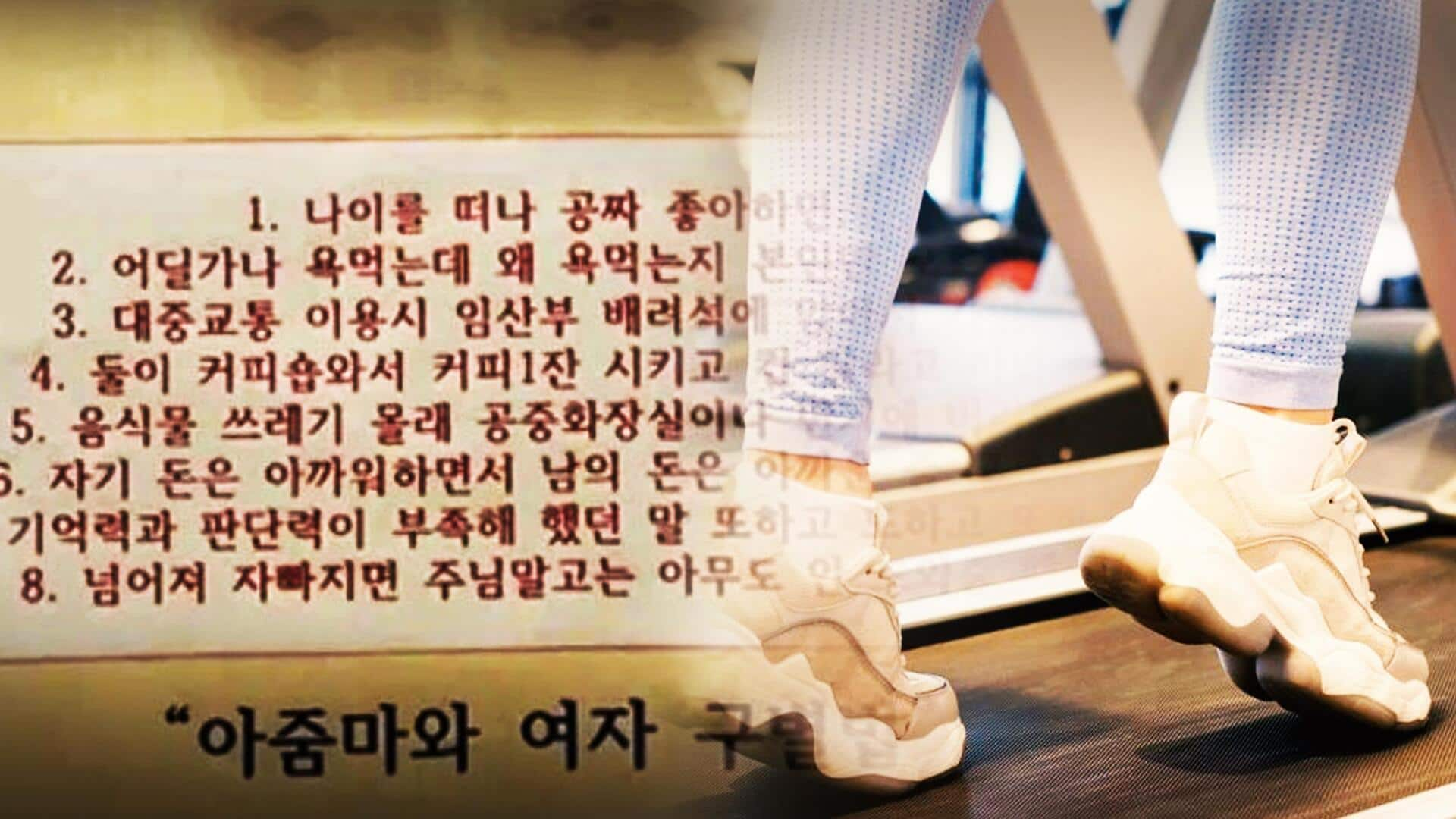
South Korean gym sparks controversy over 'misbehaving aunties' ban
What's the story
A gym in Incheon city, South Korea, has ignited a heated debate by banning "misbehaving aunties," a term often used pejoratively to describe older women perceived as rude or obnoxious. The gym displayed signs stating "off limits to ajummas" and "only cultivated and elegant women allowed." This move has reignited discussions about discrimination against older women in the country.
Owner's defense
Gym owner defends decision amidst backlash
In a televised interview with Yonhap, the gym owner defended his decision, stating that his business had "suffered damages" due to these women's unruly behavior. He alleged that some older female customers would spend hours in the changing room doing laundry and stealing items such as towels, soaps, or hair dryers. Additionally, he claimed they would comment on other people's bodies, causing discomfort among younger women and leading some to quit the gym.
Public response
Public reaction to gym's controversial ban
The incident has sparked a wider debate about age discrimination in South Korea, with some viewing it as evidence of growing intolerance toward specific age groups. The gym faced criticism for equating bad behavior with women of a certain age. A comment on local social media website instiz asked: "How did the term 'bad customer' become the same as 'ajumma?'" reflecting public sentiment against the ban.
Clarification attempt
Gym attempts to clarify stance amidst backlash
In response to the backlash, the gym issued an additional notice distinguishing between ajummas and women. The notice stated that ajummas tend to "like free stuff regardless of their age," and are "stingy with their own money but not with other people's money." The owner suggested there may be other business owners who share his sentiments but have not spoken out, adding that those enraged by the notice are "the ones with the problem."
Online reactions
Mixed reactions online to gym's 'Misbehaving aunties' ban
Despite the backlash, some online users supported the gym's decision, associating ill manners with older or middle-aged women. These supporters described them as "territorial" and "senseless," complaining about them taking up space or attention in public places. However, critics argue that men are rarely judged for similar behavior, highlighting a potential double standard in societal expectations.